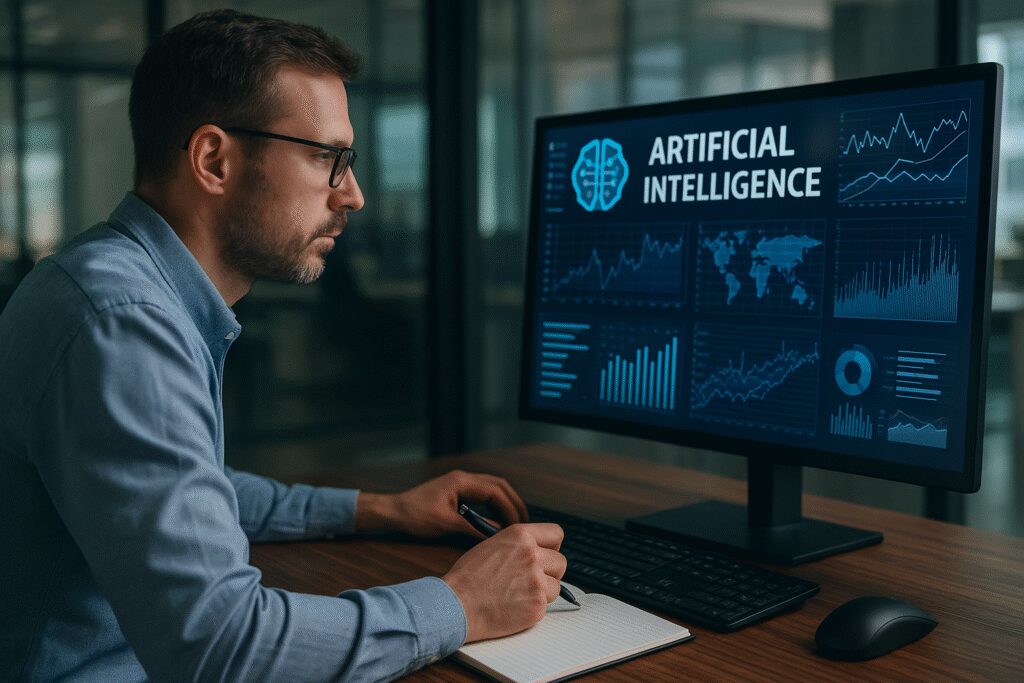Artificial intelligence (AI) has become an essential component of research and innovation in 2025, fundamentally transforming how organizations approach discovery and problem-solving. No longer a mere concept of the future, AI tools are now integral to the daily operations of researchers, startups, and technology teams globally. These advancements enable faster decision-making and enhance data analysis, offering significant improvements in efficiency and effectiveness.
The Emergence of Intelligent Research Assistance
Researchers face an overwhelming surge of data, with the volume of information produced each year doubling. This data overload has made manual research increasingly impractical. In response, AI technologies have stepped in to streamline the process. Machine-learning algorithms can now analyze thousands of documents, extracting insights and summarizing findings in mere seconds. For instance, natural language processing (NLP) models can identify trends within scientific literature, detect citation patterns, and even generate hypotheses based on existing studies. This capability allows scientists to dedicate more time to creativity, experimentation, and interpretation.
AI’s role extends beyond mere analysis; it also facilitates predictive capabilities. By employing predictive analytics, organizations can forecast outcomes across various sectors. In healthcare, AI models can estimate disease risks years in advance, while in finance, they detect anomalies that may indicate fraud or market shifts. In environmental research, AI technologies assist scientists in modeling climate changes with remarkable accuracy. Consequently, decision-makers are empowered with algorithmic evidence, significantly enhancing their strategic planning.
Collaboration: The Human-Machine Partnership
The concern that AI may eliminate human jobs is increasingly being countered by evidence of collaboration. Rather than replacing human intelligence, AI serves as a digital partner that handles repetitive tasks, enabling humans to focus on higher-order thinking. This partnership manifests in various ways: automating data cleaning and classification, translating complex datasets into user-friendly visual dashboards, and generating plain-language reports for wider audiences. The combination of human creativity and machine efficiency is where true innovation occurs.
One of the most promising developments in AI is its accessibility. Individuals no longer require extensive data science backgrounds to leverage AI tools. Various platforms now provide hundreds of user-friendly AI applications for tasks such as writing, coding, and marketing. This democratization of technology allows individuals and small teams to access cutting-edge resources at minimal or no cost, broadening the scope of innovation.
Startups, in particular, are experiencing substantial benefits from this AI transformation. With limited budgets, these emerging businesses utilize AI to streamline operations, conduct market research, and predict customer behavior. The integration of AI allows startups to scale rapidly and compete effectively against established companies, transforming tasks that once demanded entire teams of analysts into functions manageable by a single digital assistant.
As AI technologies evolve, ethical considerations surrounding their use are becoming increasingly important. Issues of bias, transparency, and accountability are at the forefront of discussions among developers and organizations. Ethical AI design is now considered essential, as ensuring fairness and protecting user privacy are critical for building public trust. Technology experts anticipate that regulation will play an expanding role in the coming years, with governments and international organizations working to create frameworks that encourage responsible AI development while fostering innovation.
Looking ahead, the integration of AI with technologies such as augmented reality and the Internet of Things (IoT) is expected to deepen. These advancements will create interconnected ecosystems of smart devices that facilitate intelligent decision-making across various fields. For researchers, this translates to enhanced automation and more profound insights. For businesses, it promises increased efficiency and strategic agility. Overall, the future of AI signals a shift toward a more accessible and actionable knowledge landscape.
AI is not merely a replacement for human intelligence; rather, it amplifies it. Those who learn to collaborate effectively with this technology are poised to lead the next era of discovery and innovation.







